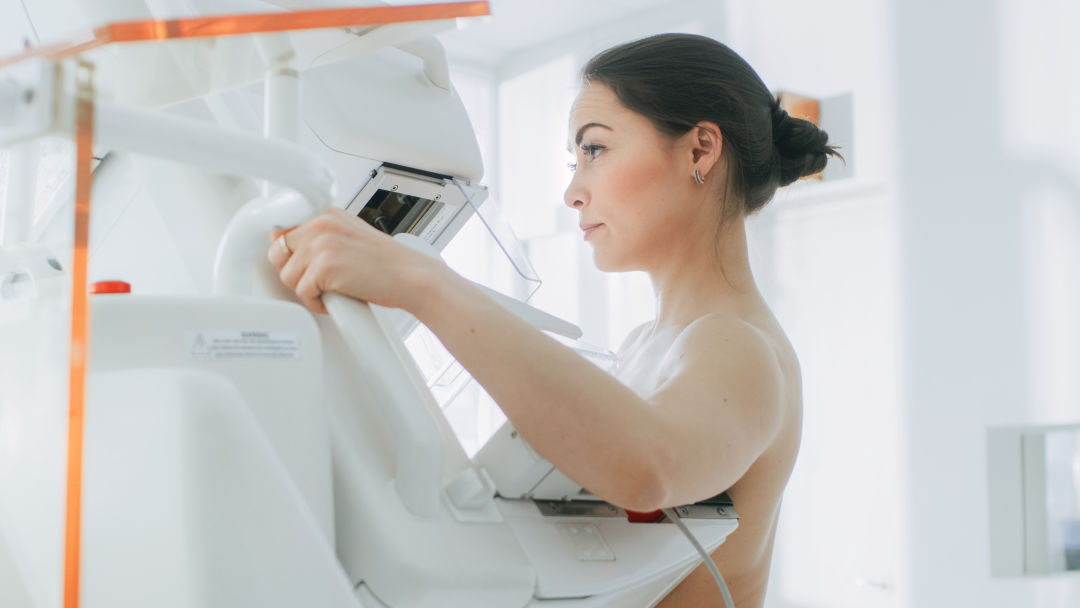Reminder: Keep Up With Your Mammograms

Image: Gorodenkoff/Shutterstock.com
When the pandemic first hit the United States in March, many elective surgeries and regular doctors' visits were postponed for fear that patients would contract Covid-19 in hospitals. This led to a trend of patients postponing yearly cancer screenings, important tests that detect aggressive diseases like breast and colon cancer.
According to a study by the National Cancer Institute, missed screenings and other pandemic-related impacts on care could result in about 10,000 additional deaths from breast and colon cancer alone in the next 10 years. Another study by the University of Massachusetts Medical School found that the number of breast cancer screenings from April 2019 compared to April 2020 dropped from an average of 13.6 to 1.4 per 1,000 women.
Mammograms are necessary and ensure cancer is caught in low to high risk patients, at any stage of the disease. The longer patients wait to receive screenings, the less chance there is to treat and cure the breast cancer.
At Sarasota Memorial Hospital, breast surgical oncologist Dr. Sarah Kimball is happy to see a steady stream of screenings, with little decline in the number of patients receiving them. Kimball began working at SMH in March, just as the pandemic began, after working for Scott & White Temple Hospital in Texas.
"Based on my reference point from Texas, and numbers when I began working here, there has not been a decline in mammograms at Sarasota Memorial since the pandemic began," says Kimball. "Women are still scheduling these important tests in our local area." Kimball adds that SMH has made adjustments in its operation to keep the number of patients in a small space limited.
The American Board of Obstetrics and Gynecology recommends the average-risk woman over the age of 40 receive a mammogram once a year. If identified as high-risk, based on personal and family history, the patient will receive an MRI and mammogram once a year.
"High risk patients should be alternating between MRIs and mammograms every six months," says Kimball. "This test schedule should proceed for the patient's lifetime."
And of course, if a patient finds an abnormality themselves, they should schedule an appointment as soon as possible to receive a diagnostic workup. If cancerous cells are detected, breast surgeries are performed as usual, and are not considered elective surgeries. Kimball adds that breast cancer removal is necessary, and just because other surgeries have been put on hold, does not mean anything regarding cancer should be delayed.
How important is it for women to keep up with mammograms, even during a global pandemic? "Extremely important," says Kimball. This is why it's recommended that women begin screenings at age 40, and sometimes earlier if the doctor has cause for concern.
"The earlier the cancer is found, the more treatable and curable it is," says Kimball.
The breast cancer department at SMH is part of its multidisciplinary cancer institute, which has recently been granted $25 million by the Jellison Family Foundation. This grant will help improve cancer treatment, including breast cancer research and treatment options.



